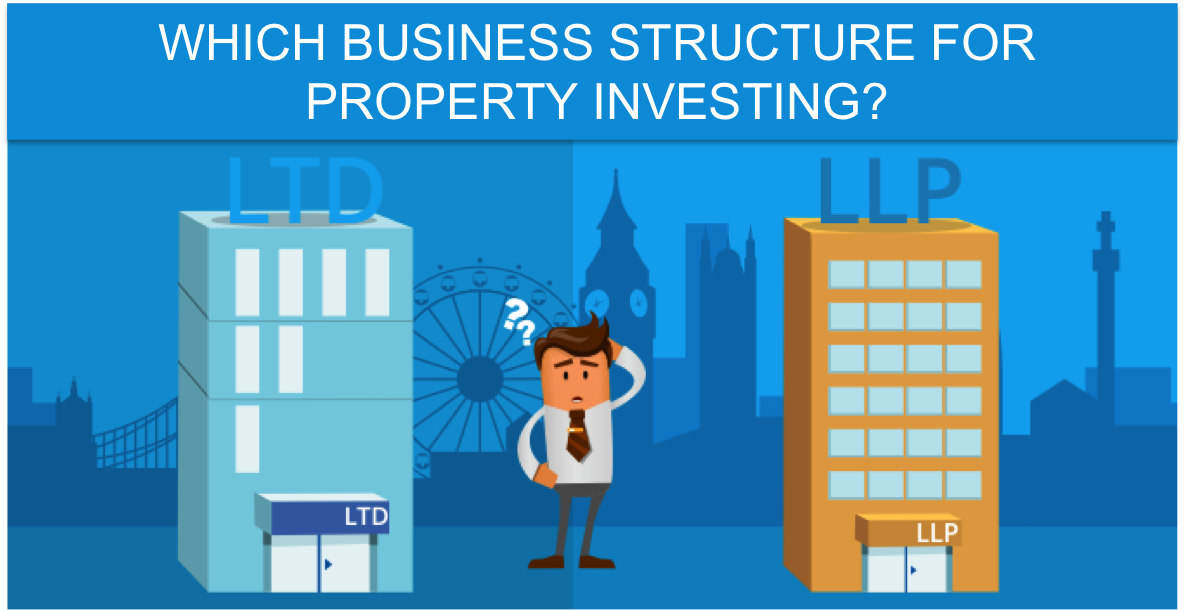On Friday I was discussing pros and cons of which company structure to use with a group of property investors at the the early stages of their journey. As there is no right or wrong answer I thought it would be helpful to share some of rationale for those who may also be wondering which is right for them.
[Please note – this is for guidance only. I am not an accountant or tax specialist. If you are just getting started looking into company structure for your property investing then these are some ideas you can research further online but most importantly by seeking out a specialist property accountant and a separate Capital Allowance Advisor].
If you are out buying property you have the option to buy in any of the following:
-Buy in your own name
-Buy in a Ltd company
-Buy in an LLP
Your choice will depend on such things as, your current tax band, where you want to create capital allowances (if applicable), and your own legacy/future tax planning. Capital allowances (a relief created with certain types of property ie if buying commercial or creating commercial) can be a bit of a complex subject – you can read more at the link here, and beyond that you’ll definitely want to seek guidance from a specialist. However, worth knowing that any of the above buying entities can benefit from capital allowances.
https://www.out-law.com/topics/tax/property-tax-/capital-allowances-on-property-transactions/
You can look up all the following tax information at .gov.uk but things to consider with a Limited company are:
-When profitable, a dividend can be taken by Directors
-Corporation tax is reducing, currently 19% and reducing to 17% in 2020
-The first £2000 of dividend are tax free and the remaining dividends upto the lower rate tax threshold of £46,350 (tax year ‘18-’19) will be taxed at 7.5%
-Bearing in mind the personal allowance for taxable income is at £11,850 (tax year ‘18-’19) this means that £46,350 paid out via a Ltd company as a mix of salary and dividends is more efficient vs being taken as salary (where everything after £11,850 is taxed at 20%)
Some considerations with a Limited Liability Partnership (LLP)
-In an LLP, the profit generated is essentially the income of the partners so will be taxed at their income tax band
-LLP’s can be a great entity for owning property, both for capital allowances purposes but also for future generation planning.
-Property can be passed down to the next generation for a small administrative cost by making them a partner in the LLP
For those who aren’t buying property but rather going down the rent-to-rent strategy, using a Limited company is the structure to use. All the operations of your Serviced Accommodation business will run through the accounts of your Ltd company and liability will be limited to the company entity, rather than being under your personal name. (In other words protecting yourself from any extreme cases of things like recourse from guest accidents whilst staying in your SA unit).
As you can see it’s not a one size fits all but may well be that a combination of the above is required to best suit your circumstances and future plans. Either way, seek professional advice to find the optimal structures for you and your family.
[Image credit: DNS Accounting]

